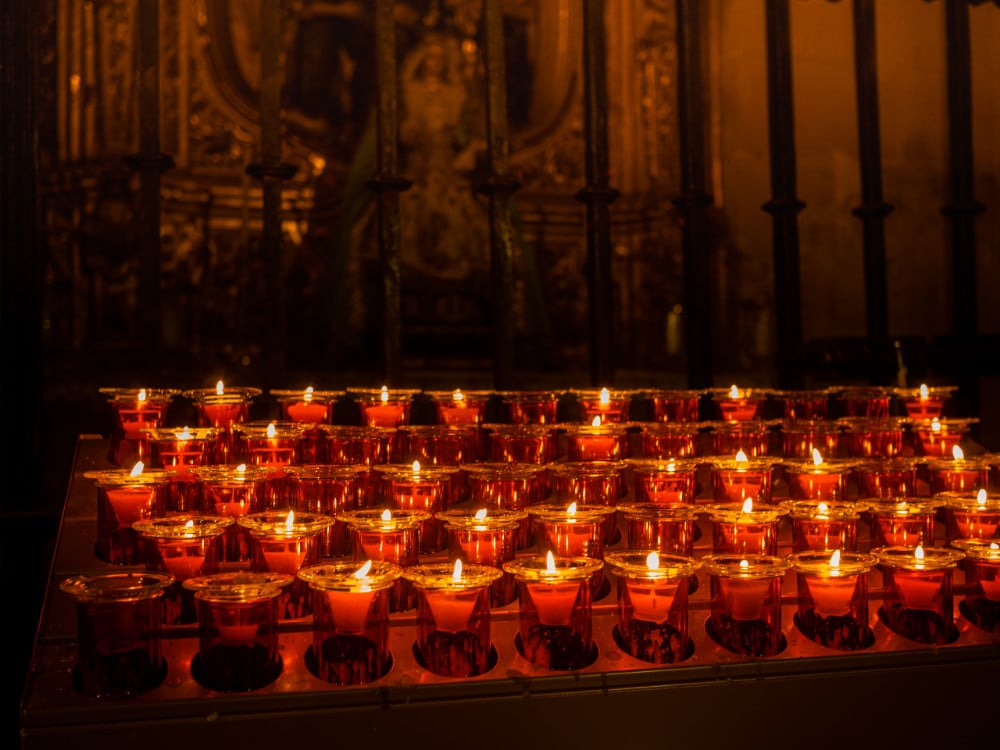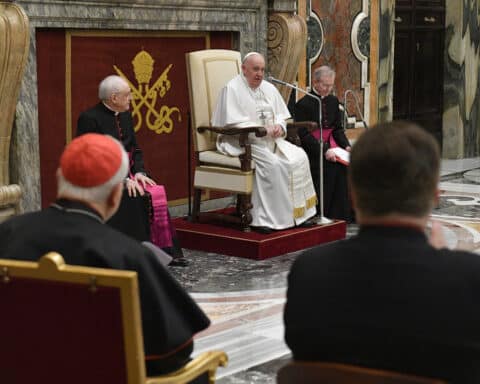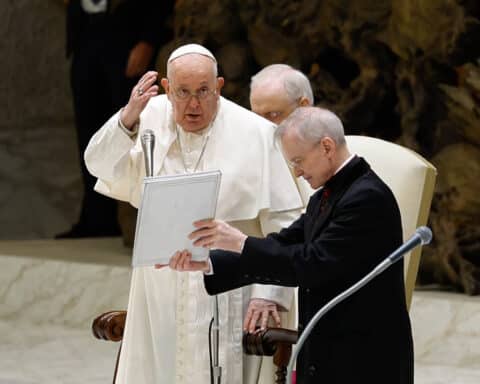
— Larry Kmet, Villa Park, Illinois
Answer: Vigil candles, often called votive candles, are a form of burnt offering. In the Old Testament, burnt offerings were common, especially at the Temple where animals were sacrificed in holocaust (a burnt offering). Part of the meat was retained for the priests in the temple, but the rest of the animal was burnt up. The point of a burnt offering was to take something of value, remove it from personal use or profit, and offer it entirely to God. In addition to burnt offerings, there were also libations (poured offerings of oil or water), cereal offerings (offerings of grain) and even wave offerings such as the waving of palm branches on Palm Sunday.
Votive candles are from the tradition of a burnt offering. A candle is purchased and burnt to the honor of God. It is also true, as you note, that the burning candle symbolizes our prayer and love for God and our request that he remember our prayers. Sometimes candles are lit at the shrines of saints, as well, to ask for their intercession. While it is true that a burning candle adds something to prayer, we ought not suppose that the prayer expires or is forgotten once the candle burns out. The flame of faith and love in our hearts is more essential than a candle in a church or shrine. Candles are more for our sake than for God, who does not have a poor memory. They are a beautiful symbol of our prayer and praise.
As for the smoke carrying our prayers up to heaven, this is only symbolically true. Incense is also a symbol in this regard: “Let my prayer be incense before you” (Ps 141:2). As symbols, we can regard smoke and incense as an image of praise and prayer rising to God, but the smoke does not literally convey our prayer “up to God.” Our prayer to God is cor ad cor loquitur (our heart speaking directly to God’s heart).
Blessings and curses
Question: Jesus said “bless those who curse you” (Lk 6:28). So Jesus will break the curse if someone curses me and I bless them? Please correct me if I am wrong.
— Louella Dias, via email
Answer: The fundamental sense of the teaching here is not to retaliate but rather to bless and pray for those who loathe or mistreat you. The idea of God breaking a formal curse directed at us is not a central theme here.
While it is true that the word “curse” is used in most English translations, the Greek root word is katára, which means to revile or express a great loathing. By extension it can be to regard one as cursed or wish them doom but doesn’t imply a formal curse, necessarily. This understanding is also reinforced when we consider that Jesus is using a form of Jewish poetry. In Jewish poetry the rhyme is in the thought, not the sound (as it is in English). Hence the full verse that you reference is: “Bless those who curse you, pray for those who mistreat you” (Lk 6:28). So “curse” here is rhymed with “mistreat.” As such, the verse exhorts us to refrain from retaliating and, instead, to answer evil with good.
Though it is possible for others to curse us, curses don’t always stick and are usually ineffective on those who are in a state of grace and close to God through prayer and the sacraments. In some rarer cases, God will allow a curse even against those in a state of grace, but only to bring forth greater blessings to those who faithfully turn to him. Again, however, such reflections are beyond the scope of the text you cite.
Pope and confession
Question: As any other devout and penitent Catholic, is Pope Francis required to attend reconciliation (confession)?
— Kevin, Northridge, California
Answer: Yes, popes, like any Catholic, must seek the Sacrament of Confession if they are aware of any serious sins. Further, they are exhorted to confess regularly even if they are not aware of serious (or mortal) sin. One might even consider that popes need confession more than most Catholics given the serious role they play and their need for grace to avoid sin and lead the Church well.
Msgr. Charles Pope is the pastor of Holy Comforter-St. Cyprian in Washington, D.C., and writes for the Archdiocese of Washington, D.C. at blog.adw.org. Send questions to msgrpope@osv.com.





